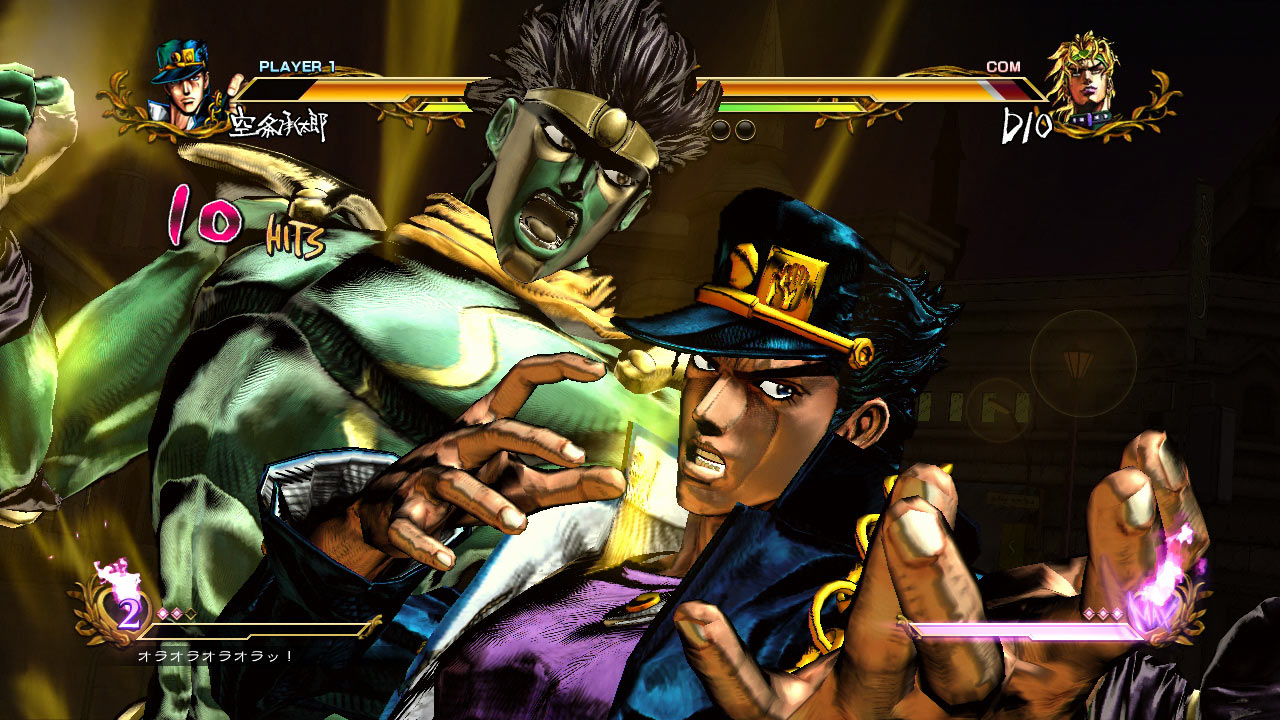GamesRadar+ Verdict
Pros
- +
Astounding visual presentation and personality
- +
Story and roster span decades of the manga's history
Cons
- -
Repetitive missions in Story mode hamper the fun
- -
Match pacing can feel too protracted
- -
Unsavory microtransactions of Campaign mode are still intact
Why you can trust GamesRadar+
If style was the only thing that mattered, JoJo's Bizarre Adventure: All-Star Battle would be a shoo-in for Game of the Year. Seeing this 2.5D fighter in motion feels like getting punched in the face by a rainbow, as colorful characters duke it out in rumbles that resemble the pages of the manga come to life. It's the substance where All-Star Battle starts to falter. Though there's plenty of content here, the stellar presentation sets the pace for outlandish fun that the gameplay just can't seem to keep up with.
As a manga that's thrived for nearly three decades, JoJo's Bizarre Adventure has always been one thing: fabulous. Hirohiko Araki's signature art style and character design portrays muscular, manly heroes striking undeniably flamboyant poses, and it is glorious. All-Star Battle manages to take the manga's visual flair and beautifully capture it in motion. The 3D models look faithful to their manga counterparts, with ludicrously slick attack animations and iconic postures. That eye-popping visual package is only strengthened by the quasi-cel-shaded graphics, a rich use of color, and little details like onomatopoeias (written with Japanese katakana) popping up left and right.
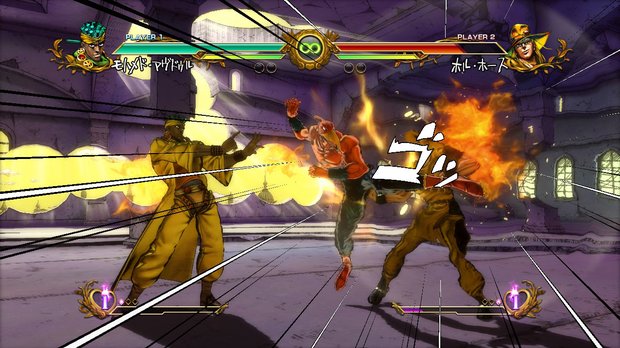
So where do things go wrong? From the moment you lay hands on the controls, you'll be astounded by how stiff they feel. All-Star Battle's fights are 2.5D: the one-versus-one action primarily takes place on a 2D plane, but the three-dimensional arenas let you sidestep attacks with the press of a button. Characters move at two speeds: sluggishly striding forward or dashing at a full sprint. Neither of these velocities make you feel like you're in total control of your fighter, so matches tend to involve a lot of jumping in on your opponent or frequent use of the sidestep. Combos look flashy but are difficult to pull off, unless you're content to use a canned auto-combo by repeatedly tapping the Light attack (similar to Persona 4 Arena). By typical fighting game standards, this pacing feels a tad too slow--which isn't helped by some odd design decisions.
For instance, taunting is highly encouraged during All-Star Battle's duels, but only serve to interrupt the action. If you score a knockdown, activating your Taunt triggers a cinematic shot of your character in a daunting pose (complete with an unnerved look from your opponent). There's a direct benefit to these taunts, because they decrease the enemy's super meter--but though they look irrefutably cool, they feel like hiccups in the action, thanks to disorienting camera movement mid-fight. There's also some on-by-default Stage Gimmicks (hey, that's what the game calls them), which range from a horse-and-chariot crashing through the battlefield to an overflow of toxic sludge. These initially add some spice to the control of spacing during a fight, but when you realize how easy they are to avoid, they end up feeling more ineffectual than exciting.
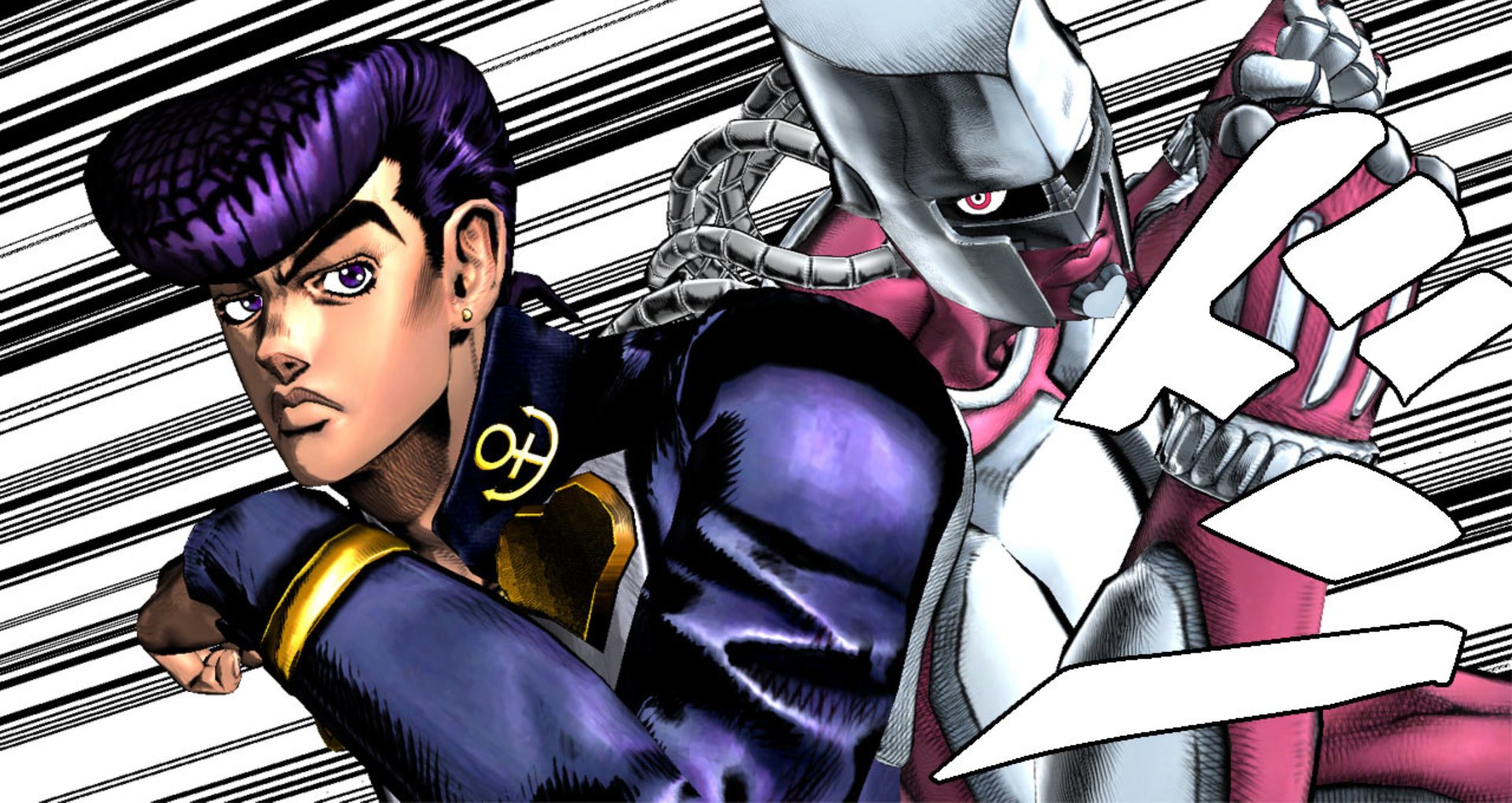
If you're unfamiliar with the legacy of JoJo's Bizarre Adventure, All-Star Battle's Story mode is a pretty solid primer for what you've been missing. It spans a whopping eight narrative arcs, each with its own contained story and righteous protagonist, divided into individual missions. These missions are like the CliffsNotes of the manga source material, recreating the most essential brawls with contextual conditions like constantly depleting life bars or single rounds. Plus, they offer audio perks that a manga can't, like a groovy soundtrack and Japanese voice-acting that's chock-full of personality.
Sadly, the Story mode ends up feeling lopsided, especially for those uninitiated in JoJo lore. Brief blurbs before and after each scuffle attempt to provide a frame of reference, but with so much ground to cover and so little character development, it's difficult to gauge the significance of each fight or grasp the consequences that unfold entirely off-screen. The first four arcs--including Stardust Crusaders, which you may recognize as the basis for Capcom's 1998 JoJo fighting game--get most of the attention, and feel far more fleshed out than the hurried latter half of the story. But the expanded arcs suffer from the repetitive nature of the missions, which often use a single backdrop across the entire saga and feature repeat duels against the same opponents with slightly altered conditions. No matter how engaging the overall plot may be, Story mode starts to feel like a slog--and experiencing it in its entirety is pretty much a requirement, because over half of the 32 fighters in the roster are locked from the get-go.
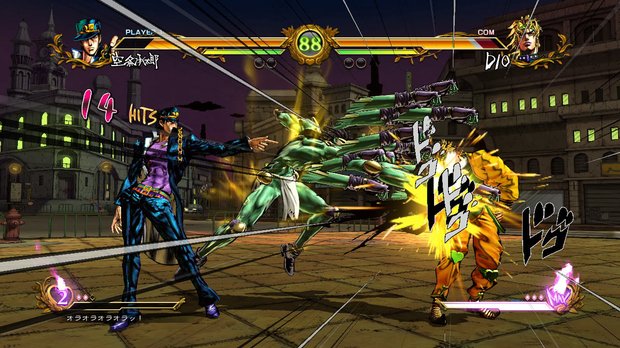
Once you're done with the Story, you can jump into a wholly unexciting (but appreciated) new Arcade mode, Versus matches, or the controversial, online-only Campaign mode. Some quick history: when All-Star Battle launched in Japan last year, players recoiled at the structure of the Campaign. Similar to the model of a mobile phone game, Campaign has an energy bar that limits how often you can play; you either have to wait for it to refill, or spend real money to boost it back up to full. The wait time for each 10th of the battery bar was a ridiculous 20 minutes, which got reduced to five after significant backlash. This model is still present in the Western release, adjusted further to a two-minute wait per battery pack--and at that point, it just feels absurd to keep it in the game at all. Playing Campaign is the only way to unlock alternate costumes, color palettes, and taunts--but the mere existence of the irritating energy system, coupled with microtransactions in a full-priced retail game, should and will be a deal-breaker for many.
JoJo's Bizarre Adventure: All-Star Battle suffers from the same dilemma that afflicts many manga-based fighters. It offers a superb presentation and an abundance of fan service but comes up short in gameplay mechanics. But if you value style over substance--or just wanted to familiarize yourself with the magnificence of Star Platinum shouting "ORA ORA ORA ORA ORA ORAAAAAAA!!!" as he throws a barrage of punches--All-Star Battle's bombastic charisma will help mask its inherent flaws.
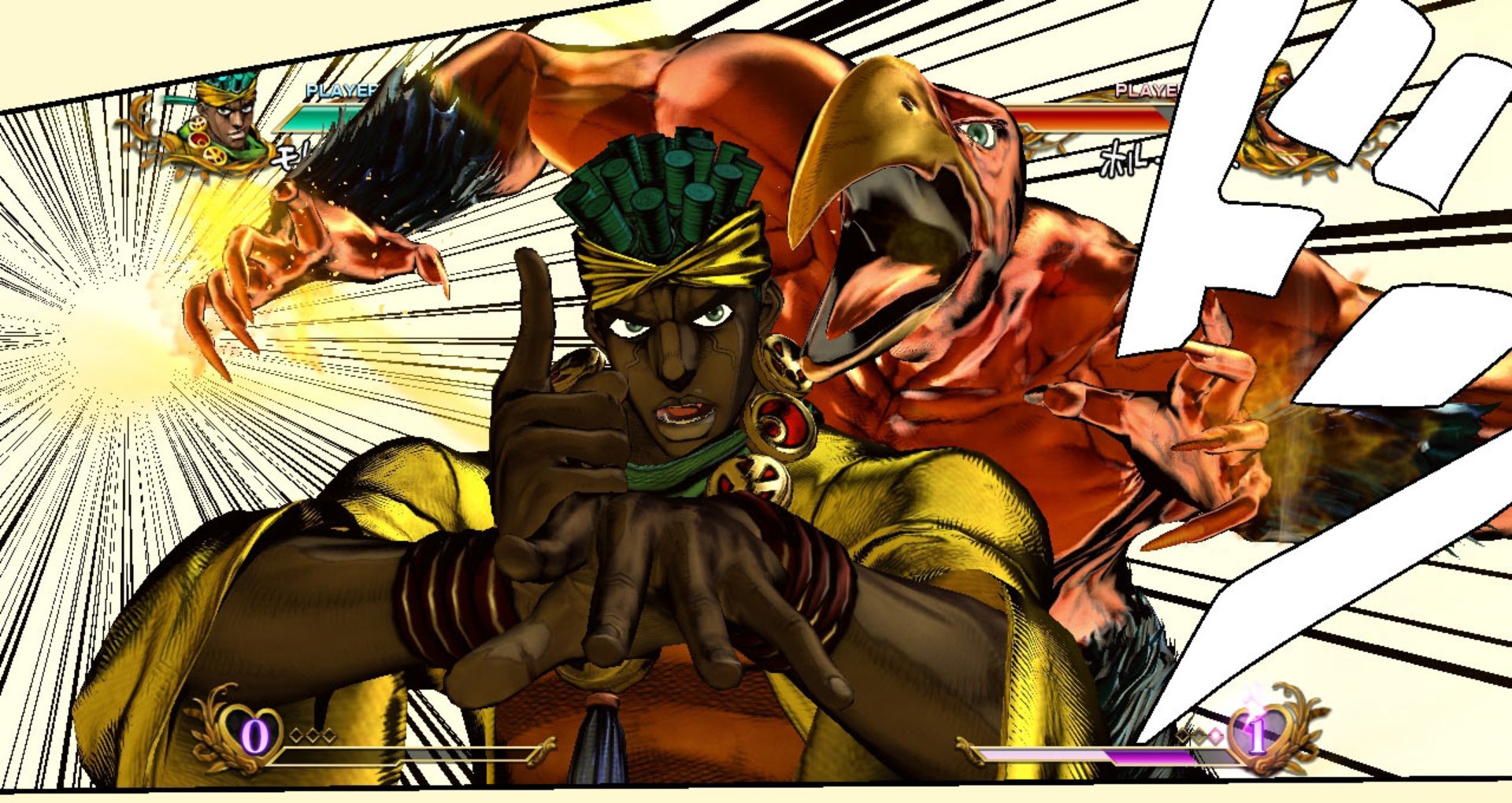
All-Star Battle's incredible presentation far outclasses its slower one-on-one gameplay and adequate modes. Diehard JoJo fans will be in heaven, but the uninitiated will lose interest once the invigorating shock of the fabulous visuals wears off.
More info
| Genre | Fighting |
| Description | JoJo's Bizarre Adventure All-Star Battle featuring JoJo other playable characters from the "Vento Aureo" arc, has only been announced for Japan so far and will hopefully be heading out West as well. |
| Platform | "PS3" |
| US censor rating | "Teen" |
| UK censor rating | "" |
| Release date | 1 January 1970 (US), 1 January 1970 (UK) |
Lucas Sullivan is the former US Managing Editor of GamesRadar+. Lucas spent seven years working for GR, starting as an Associate Editor in 2012 before climbing the ranks. He left us in 2019 to pursue a career path on the other side of the fence, joining 2K Games as a Global Content Manager. Lucas doesn't get to write about games like Borderlands and Mafia anymore, but he does get to help make and market them.
